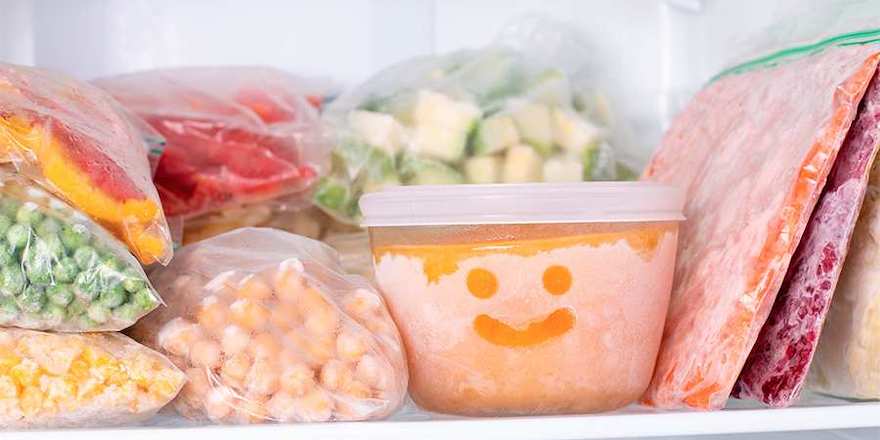Seven Tips for Eating on a Budget
Discover how you can save money on food and be a savvy grocery shopper.

Budgeting is important because not only does it teach you how to save and spend wisely, it’s also a handy life skill to have. With the price of everyday essentials on the rise, knowing how to be savvy with your grocery shopping is crucial. So, our Student Content Creator, Liam, shares his seven tips for eating on a budget as a student.
Follow Liam as he maneuvers his way around a grocery store:
1. Look out for home brands
Buying home branded goods doesn’t mean that you’re sacrificing quality to be able to save some cash. Like Liam said, Tesco’s own tropical juice is just as good and cost him £1.29, where a well-known brand would have set him back a whopping £4.95 (for less juice too!)
2. Make (and stick to) a list
Getting tempted by things whilst going around the shop is inevitable, but to be able to stay on track with your food budget, staying faithful to your shopping list is vital. When making the list consider adding some things that can be frozen, like chicken, or some cupboard essentials that are always handy to have, like pasta, or tinned potatoes.
3. Plan your meals
Keep track of what you already have from the last food shop and what you could buy the next time around to be able to make some yummy meals. Meal planning is an easy, cost-effective way not only to stay on budget, but to keep up with balanced meals. You could even get creative and make your own planner with different colours for different meals!
4. Make the most of discounts
Most supermarkets have a loyalty card scheme where you can collect points or have access to cheaper prices. As students too, you can make use of student discounts and offers either in-store or online.
5. Get cooking
Make use of those saucepans that you brought with you to university and learn some new recipes. Getting into the habit of cooking more often is a great way of saving some cash. We’re not saying that you can never go out for meals again, but it’s an idea to limit it to maybe once a month or for special occasions.
6. Freeze meals
Freezing meals means that you get more value for your money. Not only is less food going to the bin, but you also reduce the amount of time and energy spent over the stove. Make sure that the food is cool before going to the freezer, you’ve labelled it with what it is and what date it was made, and that you re-heat it well, there’s no reason why you shouldn’t be freezing food.
7. Make packed lunches
Another easy way to stay on budget is by making some packed lunches ready for a busy day of lectures, or if you’re planning a day trip. A packed lunch doesn’t have to mean a boring sandwich, you could take some left over pasta (that you made as part of your meal plan) or soup in a flask.
There you have it! If you follow these tips, you’ll be saving money on your grocery shopping and food bills in no time!
Learn more about the University of South Wales